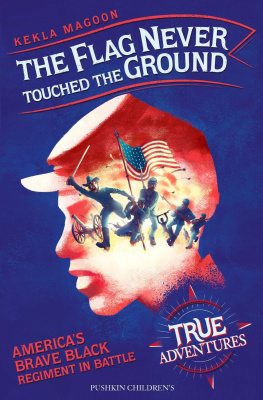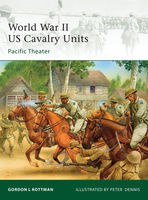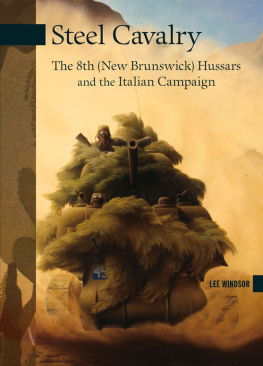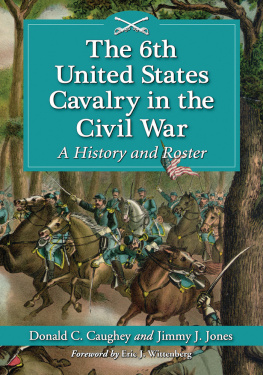John D. Warner Jr. - Riders in the Storm: The Triumphs and Tragedies of a Black Cavalry Regiment in the Civil War
Here you can read online John D. Warner Jr. - Riders in the Storm: The Triumphs and Tragedies of a Black Cavalry Regiment in the Civil War full text of the book (entire story) in english for free. Download pdf and epub, get meaning, cover and reviews about this ebook. City: Guilford, year: 2022, publisher: Stackpole Books, genre: History / Science. Description of the work, (preface) as well as reviews are available. Best literature library LitArk.com created for fans of good reading and offers a wide selection of genres:
Romance novel
Science fiction
Adventure
Detective
Science
History
Home and family
Prose
Art
Politics
Computer
Non-fiction
Religion
Business
Children
Humor
Choose a favorite category and find really read worthwhile books. Enjoy immersion in the world of imagination, feel the emotions of the characters or learn something new for yourself, make an fascinating discovery.

- Book:Riders in the Storm: The Triumphs and Tragedies of a Black Cavalry Regiment in the Civil War
- Author:
- Publisher:Stackpole Books
- Genre:
- Year:2022
- City:Guilford
- Rating:4 / 5
- Favourites:Add to favourites
- Your mark:
Riders in the Storm: The Triumphs and Tragedies of a Black Cavalry Regiment in the Civil War: summary, description and annotation
We offer to read an annotation, description, summary or preface (depends on what the author of the book "Riders in the Storm: The Triumphs and Tragedies of a Black Cavalry Regiment in the Civil War" wrote himself). If you haven't found the necessary information about the book — write in the comments, we will try to find it.
The service of African-American soldiers during the Civil War is one of that conflicts most stirring, if still not completely understood, aspects. In this comprehensive accountfrom recruitment into combat, and covering all the military, political, and social aspects of this storyJohn D. Warner recounts the history of the 5th Massachusetts Cavalry Regiment, the only Black cavalry regiment raised in the North during the war.
After Massachusetts made history with the 54th and 55th Infantry Regiments, its governor wanted to continue the experiment of training African-Americans as Union fighting men, this time as cavalry. Where the infantry regiments recruited largely free Blacks from the North, the 5th focused on escaped slaves who it was believed would be better horsemen. (But not solely: the regiments members included a son of Frederick Douglass and, interestingly, several Hawaiian islanders.) This gave the regiment a sharper edge: not only would the former slaves be fighting for themselves, but they would be fighting to liberate loved ones still enslaved. The 5ths officers were drawn from Bostons abolitionist elite, including Charles Francis Adams Jr., great-grandson and grandson of U.S. presidents, son of the U.S. ambassador to the United Kingdom.
In the spring of 1864, the regiment journeyed south and fought in Grants siege of Petersburg, where it joined attacks that nearly took the city in June. The 5th was then abruptly sent to Maryland to guard Confederate prisoners of war, until Col. Charles Francis Adams advocated for, and was granted, a return to combat duty. As part of the mostly Black XXV Corps, the cavalrymen found themselves at the vanguard of the Union army as it captured Richmond. On April 3, 1865, the 5th Massachusetts Cavalry Regiment was among the first units to enter the burning Confederate capital, at once a hellscape of destruction and a heaven for liberated slaves. Denied the rapid demobilization granted white regiments, the 5th ended the war in Texas on the Mexican border.
In the spirit of the book One Gallant Rush and the movie Glory, Riders in the Storm coversuncovers and indeed recoversthe story of the African-American cavalrymen of the 5th Massachusetts. Author John Warner has literal fingertip command of the primary sources, and after spending two decades researching letters, diaries, reports, newspapers, and more, he tells a story of resilience in the face of adversity, one that will resonate not just during the present moment of reckoning with race in the United States, but in the annals of American history for all time.
John D. Warner Jr.: author's other books
Who wrote Riders in the Storm: The Triumphs and Tragedies of a Black Cavalry Regiment in the Civil War? Find out the surname, the name of the author of the book and a list of all author's works by series.






